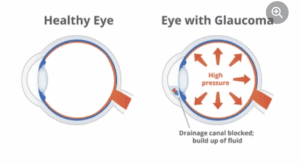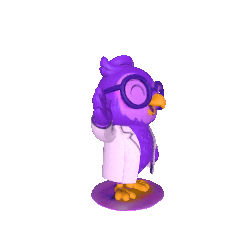Randevu +90 324 238 83 83
Home »
Last updated on August 27th, 2024 at 12:37 am
Home »
 Especially, Glaucoma Eye Disease is a very important and insidious eye condition that damages the optic nerve. Which is vital for your eye health and good vision. Usually, this damage is cause by abnormally high pressure in your eye.
Especially, Glaucoma Eye Disease is a very important and insidious eye condition that damages the optic nerve. Which is vital for your eye health and good vision. Usually, this damage is cause by abnormally high pressure in your eye.
Particularly, Glaucoma Eye Disease is one of the leading causes of blindness in people over 60. However, it can occur at any age, but is more common in older adults. Also, many forms of glaucoma have no warning signs.Therefore, the effect is so gradual that you may not notice a change in vision until the condition is advance.
Because vision loss due to glaucoma eye disease cannot be compensate. Therefore, it is important to have regular eye exams that include measurements of your eye pressure so that it can be diagnose in its early stages and treat appropriately. Vision loss can be slow or prevent if glaucoma is detect early stage. If you have glaucoma, you will usually need treatment for the rest of your life.
The signs and symptoms of glaucoma vary depending on the type and stage of your condition.
For example:
Especially, if glaucoma eye disease is not treat, this disease eventually causes blindness. Even with treatment, about 15 percent of people with glaucoma become blind in at least one eye within 20 years.
Particularly, Glaucoma is the result of damage to the optic nerve. As this nerve progressively deteriorates, blind spots form in your visual field. For reasons not fully known, this nerve damage is often associate with increase pressure in the eye.
Also, high eye pressure is cause by a buildup of fluid flowing inside your eye. This internal fluid normally drains out of a tissue call the trabecular meshwork at the angle where the iris and cornea meet. When fluid is overproduce or the drainage system is not working properly, fluid cannot flow out at its normal rate and eye pressure increases.
Especially, glaucoma tends to run in families. In some people, scientists have identified genes associate with high eye pressure and optic nerve damage.
Your doctor will review your medical history and perform a comprehensive eye exam. It can perform a variety of tests, including:
Especially, once you’re diagnose with glaucoma, you face the prospect of potentially lifelong treatment, regular checkups, and progressive vision loss.
Preparations you need to make before your doctor’s appointment
Before your appointment, make a list of the following:
If you experience some symptoms of acute angle-closure glaucoma such as severe headache, eye pain and blurred vision, call our hospital immediately and make an appointment with our ophthalmologist.
Strabismus Crossed Eye Squint Treatments, Diabetic Retinopathy Disease. Macular Degeneration Treatments. Retinitis Pigmentosa Disease and Treatments. Dry Eye Syndrome Treatments. Periodic Eye Examinations. Cataract Surgeries, Vitrectomy Surgeries, DCR Blocked Tear Duct Surgery, What is Glaucoma (AAO Source)
Especially, open-angle glaucoma is the most common form of the disease. The drainage angle forms by the cornea and iris remains open, but the trabecular meshwork is partially block. This causes the pressure in the eye to gradually increase. Therefore, this pressure damages the optic nerve. Also, it happens so slowly that you may lose sight of a problem before you even realize it.
Angle-closure glaucoma, also called closed-angle glaucoma, occurs when the iris bulges forward to narrow or obstruct the drainage angle created by the cornea and iris. As a result, the fluid cannot circulate through the eye and the pressure increases. Some people have narrow drainage angles, which puts them at higher risk of angle-closure glaucoma.
Especially, angle-closure glaucoma can occur suddenly (acute angle-closure glaucoma) or gradually (chronic angle-closure glaucoma). Acute angle-closure glaucoma is a medical emergency.
In normal tension glaucoma, your optic nerve is damaged even if your eye pressure is within the normal range. No one knows the exact reason for this. You may have a sensitive optic nerve or less blood going to your optic nerve. This limited blood flow can be cause by atherosclerosis (accumulation of fatty deposits (plaque) in the arteries) or other conditions that impair circulation.
Also, It is possible for infants and children to have glaucoma. Therefore, it may be present from birth or develop in the first few years of life. As a result, Optic nerve damage can be cause by drainage blockages or an underlying medical condition.
In pigmentary glaucoma, the pigment granules in your iris build up in the drainage channels and slow or block the fluid coming out of your eye. Activities such as running sometimes agitate the pigment granules, depositing them on the trabecular meshwork and causing intermittent pressure spikes.
Because chronic forms of glaucoma can impair vision before any signs or symptoms appear, be aware of these risk factors:
These self-care steps can help you detect glaucoma in its early stages. Which is important in preventing vision loss or slowing its progression.
Get detail eye exams on a regular basis. Especially, regular comprehensive eye exams can help detect glaucoma in its early stages before significant damage occurs. As a general rule, our doctors recommends having a comprehensive eye exam :
If you are at risk for glaucoma, you should have more frequent screenings. Ask your doctor to recommend the right screening program for you.
Especially, find out about your family’s eye health history. Also, glaucoma tends to run in families. If you are at increase risk, you may need more frequent screenings.
Exercise safely. Particularly, regular, moderate exercise can help prevent glaucoma by reducing eye pressure. Therefore, talk to your doctor about an appropriate exercise program.
More importantly, take prescription eye drops regularly. As a result, glaucoma eye drops can significantly reduce the risk of high eye pressure progressing to glaucoma. To be effective, eye drops prescribed by your doctor must be use regularly, even if you do not have any symptoms.
Especially, use eye protection. Also, serious eye injuries can cause glaucoma.
The damage causes by glaucoma is irreversible. But treatment and regular checkups can help slow or prevent vision loss, especially if you catch the disease in its early stages.
Glaucoma is treat by lowering your eye pressure (intraocular pressure). Depending on your situation, your options may include prescription eye drops, oral medications, laser therapy, surgery, or any combination of these.
Usually, glaucoma treatment begins with prescription eye drops. As a result, These can help lower eye pressure by improving how fluid flows out of your eye or by reducing the amount of fluid your eye makes. Depending on how low your eye pressure should be, it may be necessary to use more than one of the eye drops prescribed by our Doctor.
If eye drops alone do not reduce your eye pressure to the desired level, our doctor may also prescribe an oral medication.
Especially, other treatment options include laser therapy and various surgical procedures. Also, the following techniques aim to improve the drainage of fluid inside the eye and thereby lower the pressure:
Particularly, Laser Trabeculoplasty is an option if you have open-angle glaucoma. Your doctor uses a small laser beam to open blocked channels in the trabecular meshwork. It is possible that it will take several weeks for the full effect of this procedure to appear.
Trabeculectomy surgery
With a surgical procedure, your surgeon creates an opening in the white of the eye (sclera) and removes part of the trabecular meshwork.
In this procedure, your eye surgeon inserts a small tube into your eye to drain excess fluid to lower your eye pressure.
Minimally invasive Glaucoma surgery (MIGS). Your doctor may recommend a MIGS procedure to lower your eye pressure. These procedures generally require less immediate postoperative care and are less risky than installing a Trabeculectomy or a Drainage Tube. They are often combine with cataract surgery. Also, a number of MIGS techniques are available, and your doctor will determine which procedure may be right for you.
Especially, after your procedure, you should see your doctor for follow-up exams. And if your eye pressure starts to rise or other changes occur in your eye, you may eventually need to undergo additional procedures.
Particularly, Acute Angle-closure Glaucoma is a medical emergency. If you are diagnose with this condition, you will need emergency treatment to reduce the pressure in your eye. This usually requires both medication and laser or other surgical procedures.
You may have a procedure call Laser Peripheral Iridotomy, in which the doctor creates a small opening in your iris using a laser. This reduces eye pressure by allowing fluid to flow through it. Generally common Glaucoma Surgery methods and 3 different techniques are used in tube placement.
Your eye surgery will decide which of these treatments will be apply according to the condition of your eye.
Additionally, these tips can help you control high eye pressure or improve eye health.
Eat a healthy diet. Following a healthy diet can help maintain your health, but it will not prevent your glaucoma from getting worse. Especially, many vitamins and nutrients are important for eye health, including zinc, copper, selenium, and the antioxidant vitamins C, E, and A.
Especially, regular exercise can reduce eye pressure in open-angle glaucoma. Talk to your doctor about an appropriate exercise program.
Limit caffeine. Drinking large amounts of caffeine-containing beverages can increase your eye pressure.
Drinking a liter or more of any liquid in a short period of time can temporarily increase eye pressure.
Sleep with your head high. Especially, using a wedge pillow that holds your head slightly elevated by about 20 degrees has been shown to reduce intraocular pressure while you sleep.
Be sure to use the prescription drugs prescribe by your doctor. Also, using your eye drops or other medicines as prescribe can help you get the best possible result from your treatment. Be sure to use the drops exactly as directed. Otherwise, your optic nerve damage may get worse.
Randevu +90 324 238 83 83
